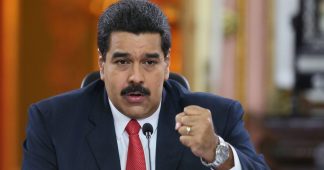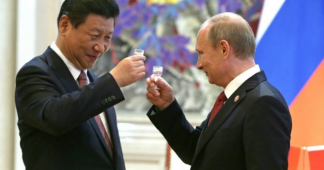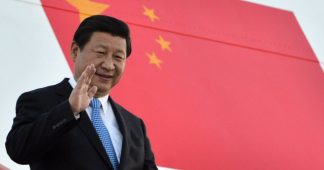August 22, 2018
Over the last couple of years, we’ve been reporting on efforts to remove the US dollar from its throne as the world reserve currency. We’ve primarily seen moves toward de-dollarization from countries like China and Russia, and other nations within their orbits. It’s easy for Americans to dismiss efforts to undermine the dollar as desperate moves by their enemies that will never gain any kind of international traction. But now we’re beginning to hear the same de-dollarization rhetoric from American allies.
Earlier this week, German foreign minister Heiko Maas called for the creation of a new payments system independent of the United States.
The proposal is in response to Donald Trump’s decision to withdraw from the Iran nuclear deal. In an article published by Handelsblatt, Mass wrote that Europe should not allow the US to act “over our heads and at our expense.”
For that reason it’s essential that we strengthen European autonomy by establishing payment channels that are independent of the US, creating a European Monetary Fund and building up an independent SWIFT system.”
SWIFT is the Society for Worldwide Interbank Financial Telecommunication. The system enables financial institutions to send and receive information about financial transactions in a secure, standardized environment. Since the dollar is the world reserve currency, SWIFT facilitates the international dollar system.
SWIFT give the US a great deal of leverage over other countries. The US has used the system as a stick before. In 2014 and 2015, it blocked several Russian banks from SWIFT as relations between the two countries deteriorated. Last fall, the US threatened to lock China out of the dollar system if it didn’t follow UN sanctions on North Korea.
It’s understandable why other countries would want to limit their exposure to SWIFT, and more broadly the US dollar. And many countries are making moves in that direction. For instance, the Russians have been dumping US Treasuries and buying gold. China has also been buying gold. Many analysts believe the two countries are buying gold specifically to minimize their dependence on the US dollar and possibly to create a foundation for an alternate payment system.
Again, this is not surprising given the relationship between the US and these two countries. But it is quite shocking to hear one of America’s closest allies talking openly about de-dollarization.
Global Public Policy Institute director Thorsten Benner told the Financial Times that Maas issued the “strongest call yet for EU financial and monetary autonomy vis-à-vis the US.”
As the FT put it:
The foreign minister’s article highlights the depth of the dilemma facing European politicians as they struggle to keep the Iran deal alive while coping with the fallout of US sanctions imposed by Mr. Trump against companies doing business with Tehran. The EU has committed itself to the agreement and has vowed to protect European businesses from punitive measures adopted by Washington.”
US sanctions directly impact the Belgium-based SWIFT system. Unless it gets an exemption from the sanctions, it will be required to cut off targeted Iranian banks or face US retaliation. According to the FT, “These could include asset freezes and US travel bans for the individuals, and restrictions on banks’ ability to do business in the US.”
The US uses dollar-dominance as a billy club to keep other countries in line. It’s becoming increasingly clear that the rest of the world is growing weary of the United States holding an economic hammer over its head. It seems likely we will see more efforts to reduce dependence on the US dollar, including the development of alternate payment systems.
There are already efforts underway to create alternative payment systems using gold that would enable countries to operate outside the dollar-dominated SWIFT system. Earlier this year, financial expert Jim Rickards wrote about a developing “axis of gold.” He said, “This gold-based payments system will dilute and ultimately eliminate the impact of US dollar-based sanctions.”
While the US can effectively lock out countries from the dollar system, they have very little control when countries start doing business in gold. Since gold is physical, not digital, there is no way for it to be hacked, frozen or electronically diverted. It cannot be interdicted through SWIFT. Gold is fungible and non-traceable, and the yellow metal is relatively easy to transport.
It appears de-dollarization efforts could be spreading. This is not good news for the greenback or those hoping for continued US economic dominance.
Published at https://schiffgold.com/key-gold-news/german-foreign-minister-pushing-for-de-dollarization-of-world-payment-system/











